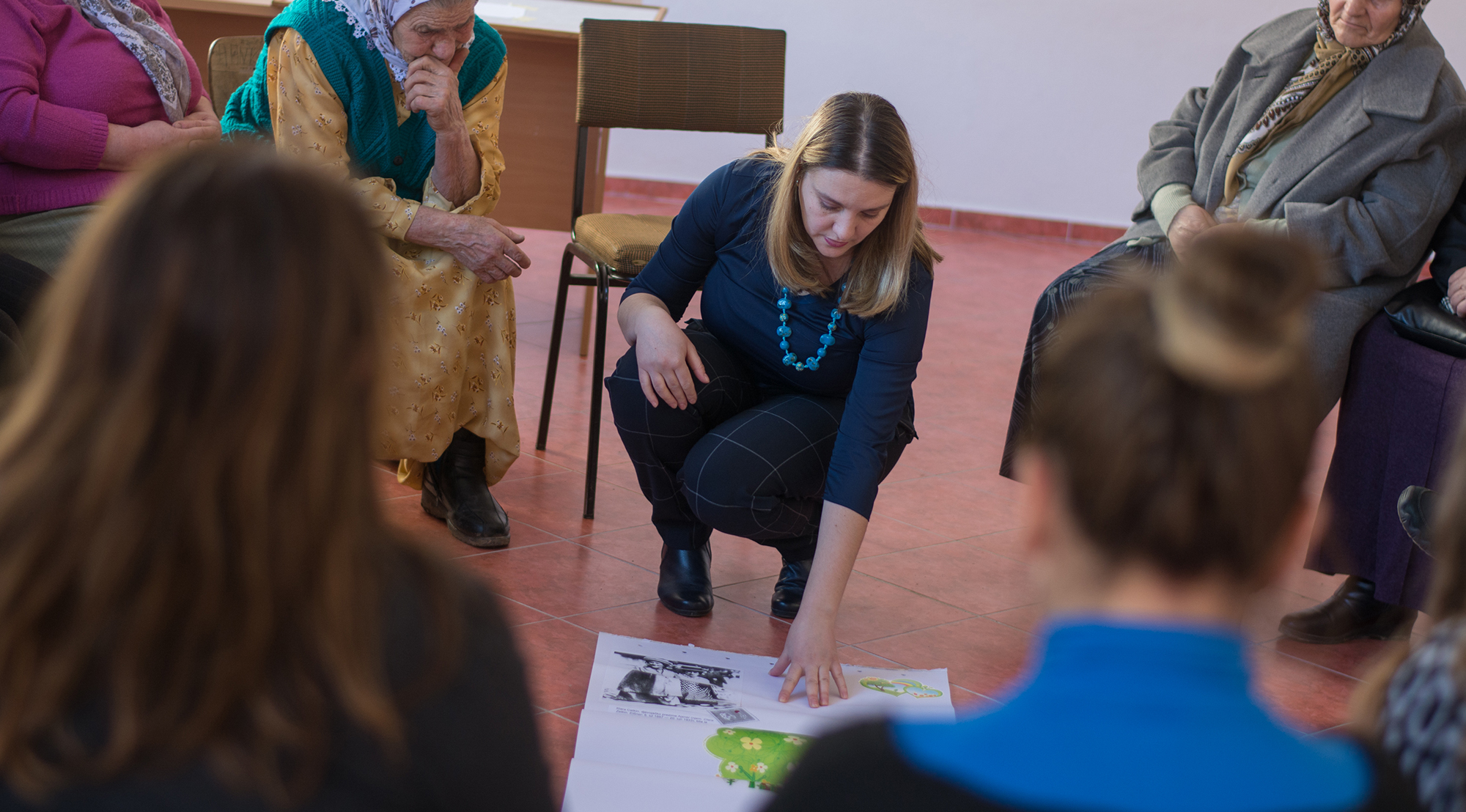For IAMANEH Switzerland and our local partner organizations, the psychosocial approach is central to the work done with women and girls affected by violence In Bosnia and Herzegovina, ethnic tensions can still be felt everywhere – even though the war finished 20 years ago – and the fragmentation of society is being promoted and cemented by nationalistic and separatist policies.
This is why our partner organization Vive Žene is applying a community-based psychosocial approach in eastern Bosnia as part of its work with both Bosnian returnees and the Bosnian-Serbian population currently in situ. This community-based psychosocial approach relies on collective processing of trauma and sadness. Affected communities draw heavily on their own resources and abilities, try and come to terms with the past, and therefore contribute to the collective process of healing and reconciliation. Drawing on its long experience of violence-related work and therapy for war trauma, and building on approaches from various experts, Vive Žene has developed its own method for working with ethnically mixed groups. The first step with this method is to build the basis for trust between population groups. The next phase is one of joint group work, with the main focus on getting to know the “other side.” Those taking part should understand their day-to-day situation and the challenges they face. Only then are traumatic experiences discussed together and processed using things like Gestalt therapy techniques. This method includes, for example, painting pictures of what has been experienced, followed by a joint discussion of the imagery people have chosen to use and what it might mean. The last step is about further strengthening and deepening personal relationships between members of the different population groups.
Picking up on so-called “connectors” and “dividers”, i.e. those elements that connect or divide population groups, is central to the entire process. Particularly with the work done with women’s groups, things like domestic violence and the lowly status of women present common problems that unite women across ethnic divides. Participation in these groups not only therefore strengthens relationships between population groups, but also empowers the women involved and gives them the courage to improve their position within their own community and insist on their rights.


